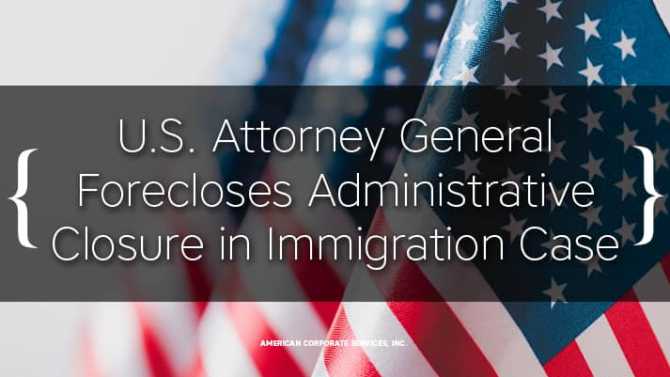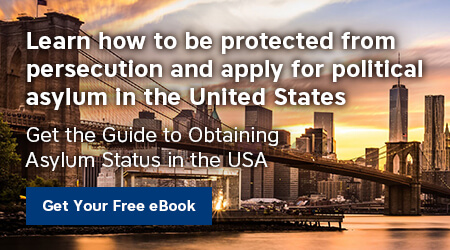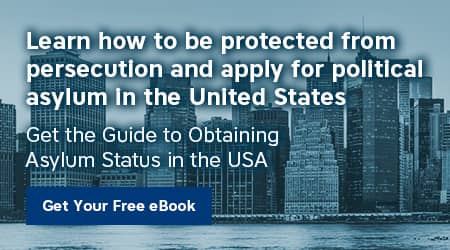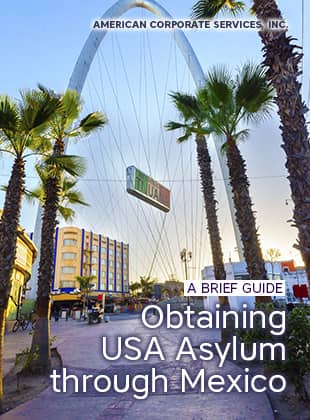WASHINGTON, DC – The Justice Department announced on Thursday, May 17, 2018, that U.S. Attorney General Jeff Sessions has ruled to foreclose the practice of Administrative Closure by Immigration Judges.
That ruling has raised the hue and cry from advocates and opponents to the ruling. Our purpose is to neither advocate nor oppose, but to explain what the ruling means and why it was imposed.
What Is Foreclosure?
Most people are familiar with the term “foreclosure” associate it with a practice that lending institutions use when homeowners fall in arrears on their mortgage payments. In a more general legal sense, applicable here, foreclosure means “to hinder or prevent.” In this case, the Attorney General’s ruling prevents Immigration Judges from exercising Administrative Closure.
What Is Administrative Closure?
Administrative Closure is a procedure by which an Immigration Judge may temporarily remove low-priority cases from the court docket. Typically, a low-priority case is one in which the defendant appealing deportation has been in the United States for an extended time and has not engaged in known criminal activity. Many of the cases also involve situations where the defendant fails to appear for his or her hearing.
Administrative Closure allows the judges to focus on high-priority cases, especially those involving known criminals.
Why Do Some People Agree with the Attorney General’s Decision?
Generally, those people believe that temporarily preventing discretionary Administrative Foreclosure will, indeed, allow Immigration Judges to focus on processing the most-likely candidates for deportation. This aligns with the administration’s agenda to find and return illegal immigrant gang members and law-breakers to their homelands.
In addition, proponents believe that the failure to adjudicate a case temporarily ends up with the case never being heard at all. They believe that using Administrative Closure simply because the respondent fails to appear (which may or may not be happening) may allow some of the criminal element to remain in the U.S. illegally.
Why Do Some People Disagree with the Attorney General’s Decision?
Generally, these people take one of two primary positions. The first is the claim that the administration is trying to turn the Immigration Courts into a “deportation machine.”
The other is that some believe that denying a respondent’s opportunity to move his or her hearing to a later date infringes upon the individual’s right to a speedy hearing.
There may also be some concern that this temporary foreclosure could become permanent.
The Problem Is the Backlog of Cases
It has become apparent that, because of the use of Administrative Closure, the actual number of cases requiring adjudication may be much higher than what had been reported by the previous administration because of failure to accurately report the number of cases in Administrative Closure.
The backlog of cases waiting to be heard was 212,000 at the beginning of 2006. By 2015, the backlog had increased to 437,000 cases with a median processing time of 404 days.
How this falls out remains to be seen. Attorney General Sessions is attempting to get all pending cases adjudicated. The unintended consequences may be that the backlog will, at least statistically, increase and that respondents who have no legal representation may find themselves being unwillingly exited from the United States.
The attorneys at American Corporate Services, Inc. understand the complexities of U.S. Immigration Law and are highly skilled at ensuring that our clients are fully equipped to understand the process and prepared to succeed with their petitioning process as quickly and efficiently as possible. If you are notified that you must appear before an Immigration Court, we urge you to contact our lawyer immediately for assistance.










